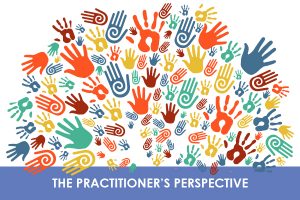Exploring Equity Issues - Blog

Bold Classroom Conversations: Let’s Talk About Racism!
By Tyreece Woodly
Montgomery County Public Schools, MD
 It’s hard to argue that history is being shaped right before our eyes. The old adage, “history repeats itself,” is being affirmed in society every day. When it comes to issues of race and racism, some will go the ends of earth to argue that “we’ve come such a long way.” I don’t necessarily disagree with this statement. My problem is with those who have the audacity (read: ignorance) to make such a statement without also recognizing that there is so much more to be done.
It’s hard to argue that history is being shaped right before our eyes. The old adage, “history repeats itself,” is being affirmed in society every day. When it comes to issues of race and racism, some will go the ends of earth to argue that “we’ve come such a long way.” I don’t necessarily disagree with this statement. My problem is with those who have the audacity (read: ignorance) to make such a statement without also recognizing that there is so much more to be done.
I don’t recall talking much about racism as a youngster, at least not in class. However, the same way we’ve had to change our approach to educating students, we also have to change the topics we bring attention to in class. Some teachers choose not to talk about racism with students. I, on the other hand, don’t see that as an option. How can I profess to want to make history more meaningful and relevant to them while avoiding discussions on racism? It just doesn’t work. Like it or not, students encounter racism daily. Who are we to actively avoid or shun such discussions in a place where we should be showing them how academic subjects reflect their everyday lives? It’s difficult to be a part of the solution when you’ve never been given the platform to discuss the problem. Sure, arguments can be made for why school is not the place for this type of dialogue, but I don’t believe a better place exists for it.
I remember the first time I discussed racism with my students. I was nervous – I’m talking sweaty palms and all – not so much because I did not know what to say, but I was unsure about how my students would react. I was concerned with their comfort. Would they deflect? Would they squirm in their seats and look away as kids tend to do when they don’t want to participate? (By the way, that never works with me – I’m still going to call on you!) Would it create tension between them? Could I remain neutral in my role as facilitator? Will I come into work the next day to an onslaught of emails from parents, angry over my decision to discuss touchy subjects in school?
If I had any doubts about whether my students could handle such a controversial and potentially divisive topic, they all went out the window within a few minutes of starting the discussion. They demonstrated not only the ability to handle it, but also a keen awareness of how issues of race intersect with gender and even age. Their experiences, especially as young people of color, had a direct impact on how they see the world. In most cases, they were able to articulate this impact.
Talking about racism, in my experience, has been most successful when the conversation is somewhat structured and includes thought-provoking, open-ended questions. Everyone is given the opportunity to add to the conversation. Setting ground rules is important, too. In the famous words of Lauryn Hill, “respect is just a minimum.” Everyone involved has to accept that people bring different experiences that shape their perspectives. I tell my students that even when the words of the person sitting across from you make them appear to be from another planet, the conversation must remain civil. I encourage them to push through discomfort and accept it as part of the growth process. Parental pushback is a powerful force. Minimizing it requires making sure that any discussions on racism tie back to the curriculum. After all, how can they argue with that? Ok…they still find a way, but you get my point!
We can optimize learning for students when we empower them to teach and learn from one another and become change agents in their own way. Who am I to assume that my students are incapable of handling this responsibility? To do so is to project my own discomfort upon them, showing a lack of respect for their intellectual ability and a lack of concern for the issues that matter to them. Maybe one day there’ll be no need to talk about racism with students. Unfortunately, we’re just not there yet.
The Center for Education Equity (CEE) at MAEC is inviting members of our advisory board, partners, and other colleagues to share their views on current equity issues. Their opinions do not necessarily reflect CEE’s views or those of the Department of Education and we do not necessarily endorse any products or resources they promote.
